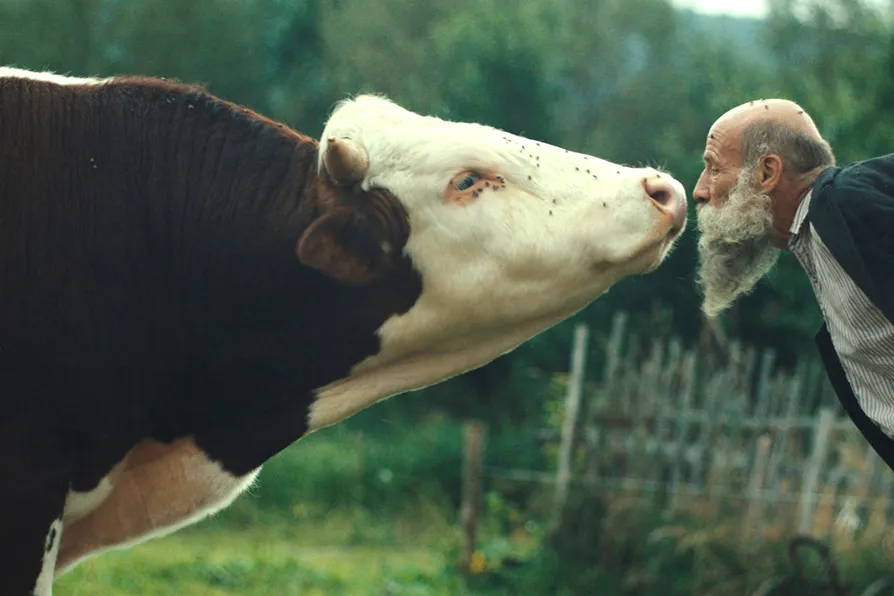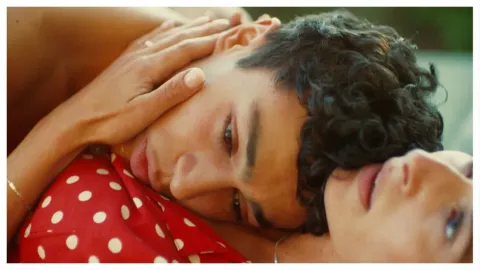GORDON PARSONS applauds a marvellous story of human ingenuity and youthful determination, well served by a large and talented company
RITA DI SANTO gives us a first look at some extraordinary new films that examine outsiders, migrants, belonging and social abuse

 BUCOLIC IDYLL: An image from Better Go Mad In The Wild by Slovak director Miro Remo [Pic: Courtesy of Karlovy Vary Film Festival]
BUCOLIC IDYLL: An image from Better Go Mad In The Wild by Slovak director Miro Remo [Pic: Courtesy of Karlovy Vary Film Festival]
Better Go Mad In The Wild has claimed the top prize at the 59th Karlovy Vary Festival. A documentary by Slovak director Miro Remo follows twins Frantisek and Ondrej Klisik, who live in the Czech village of sumava, known as the Bohemian Forest.
The brothers, eccentric outsiders in their sixties, have never left their home, leading a unique and fascinating life. They struggle with alcohol and face challenges integrating into a country that isn’t their homeland. They are descendants of Slovaks from Romania who settled in the Sumava region after World War II, in areas vacated by Germans. They have never found secure stable employment.
Their life story, chosen freely, resembles an adult fairy tale. The director’s lens serves as both witness and companion, creating a pure, truthful and fearless portrait that is visually rich and deeply magical. The twins possess artistic souls, and their “art of living” is vivid and authentic, prompting provocative reflection.
Best Director went to Lithuanian Vytautas Katkus for The Visitor, a poignant tale of identity and belonging, following Danielius, a young father in his mid-thirties who embarks on a journey back to his roots in Lithuania. After leaving his family in Norway to sell his parents’ flat, Danielius reunites with old friends and unexpectedly finds himself drawn to stay, abandoning his plans to return. As he navigates the familiar yet changing landscape of his childhood home, the weight of material possessions and inherited traditions comes to the forefront.
The film beautifully captures the intricate web of relationships between people, places and things, highlighting how the memories and emotions tied to a house can be just as significant as the physical structure itself.
Ultimately, the story reveals that it’s the connections and experiences that truly matter, rendering material possessions almost irrelevant in the grand scheme of life. In his feature film debut, Katkus masterfully captures the nuances of time and space, creating a contemplative atmosphere that highlights the human experience and the bittersweet nature of home.

Don’t Call Me Mama, the debut feature by Norwegian Nina Knag, won the best actress award for Pia Tjelta, who stars in this story of refugee integration. Tjelta plays Eva, a schoolteacher facing the ultimate test when she begins a forbidden relationship with an asylum-seeker. Married to the town’s mayor, her relationship is in crisis. Amir, one of her students, seems to be her solution. Handsome, kind, and intelligent, Amir is a refugee from Syria who after nine years in the country still struggles to obtain a residence permit. He is much younger than Eva, who could be his mother.
When he finally receives the permit, his life changes, and he starts a relationship with a girl his own age. Eva, jealous and in crisis, takes drastic revenge, destroying Amir’s future to protect herself and her husband. This story subtly exposes and denounces the corrupt mechanisms of a society where immigrants can be used for political or personal gain. The film crafts a palpable atmosphere of tension, elevated by deeply realized characters navigating a strained and gripping relationship.
Another significant film was Czech director Ondrej Provazmik’s Broken Voices, a masterful exploration of the dark underbelly of elite institutions, where prestige and power often shield predators. Loosely based on the notorious “Bambini di Praga,” a Czech children’s choir scandal, the film follows two sisters navigating the treacherous world of competitive choral music as they prepare for a high-stakes concert tour in the US. The anticipation of performing on the world stage heightens the tension as 13-year-old Karolina’s talent earns her the choirmaster’s favour, and the lines between mentorship and manipulation blur.
Provaznik skilfully exposes the intricate dynamics of abuse, highlighting the ways in which charismatic figures can exploit their positions of power. The film’s nuanced portrayal of the girls’ struggles to confront reality is both poignant and thought-provoking. By probing the culture of personality and prestige that surrounds elite choirs, Broken Voices reveals a hidden world where secrets are kept, and predators are protected. As the concert looms closer, the girls are forced to confront the darkness beneath the surface of their idyllic world. It’s an urgent story, exploring the culture of personality and the prestige surrounding elite choirs that tend to protect predators.
Finally, Divia by Dmytro Hreshko presents a different perspective on conflict and war. His documentary highlights Russia’s unprecedented aggression on Ukrainian soil and its devastating impact on places that silently bear witness: forests turned to ash, fields ravaged by explosions, flooded towns and rusted military hardware in devastated regions where life has faded. The music and images create a poetic tapestry that prompts viewers to reflect on destruction, bringing nature back to its truth, where there are no borders, no ends.

LEO BOIX, ANDY HEDGECOCK and MARIA DUARTE review Dreamers, It Was Just An Accident, Folktales, and Eternity












